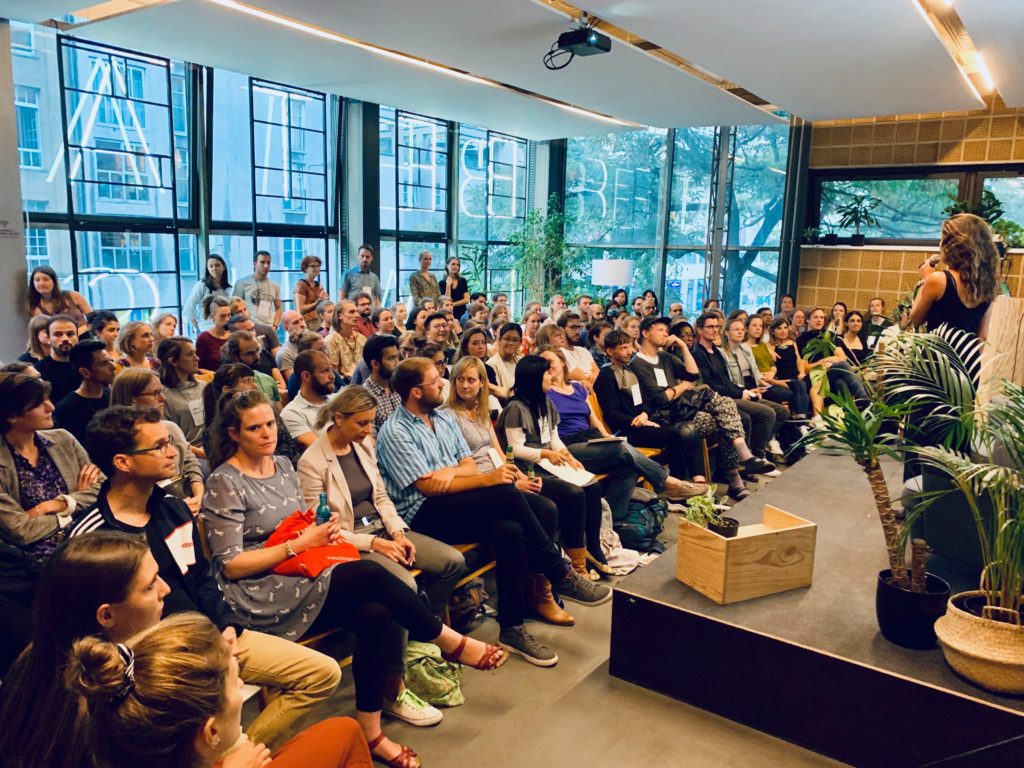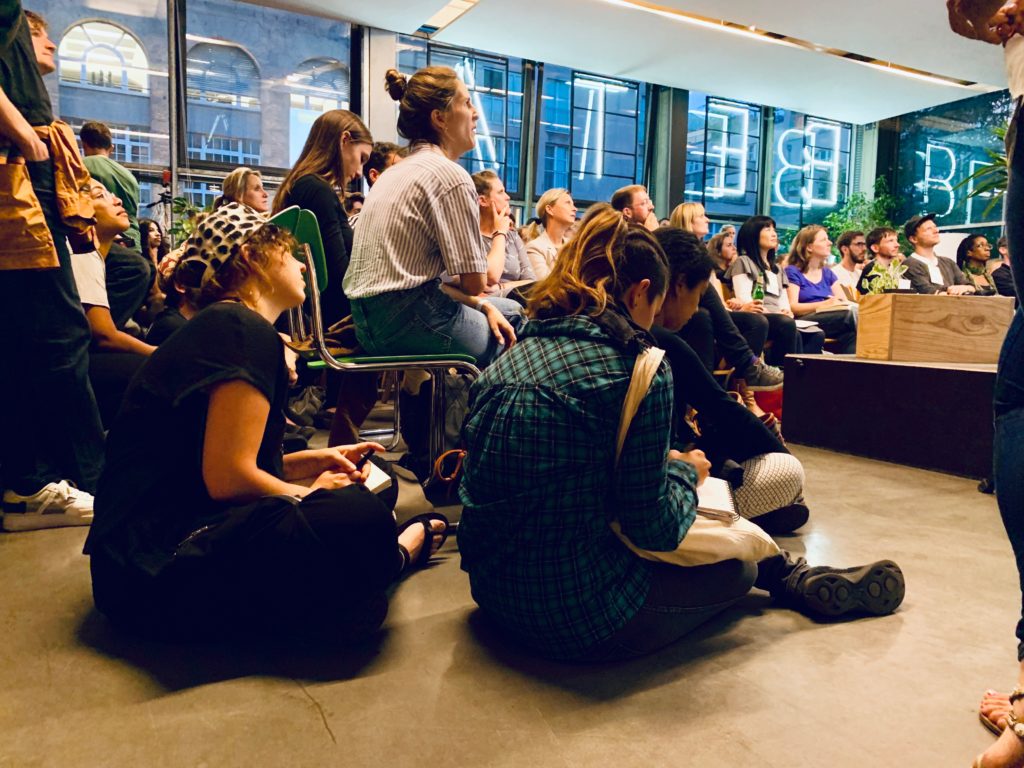Takeaways from our last event and challenges moving forward

The idea of ‘sustainable travel’ demands thought and attention – such was clear at our Sustainable Tourism event that attracted a full house at Betahaus on the 3rd of September. We had two speakers: Susana Baumann, the Corporate Social Responsibility Manager at Ventura Travel, and Santeri Lehtonen, a field-tested Ecologist currently working with Impact Entrepreneurship, LCA and Climate Action, and creator of vojo, a low-carbon travel planning project. Both Susana and Santeri spoke about the ways their organizations are making tourism more sustainable and offered their own advice for individual decision making when it comes to travelling. Some challenging issues such as taxing kerosene and flying less were discussed, although with an air of trepidation, as these are sensitive issues for some people. It was a good reminder that these matters must be addressed with both empathy and fact based solutions and alternatives.
Susana began by speaking about the role of CSR, or corporate social responsibility. As the CSR manager of Ventura Travel she is an ambassador for sustainable tourism. She spoke passionately about the ways both individuals and travel companies can act responsibly while travelling abroad.
Some ways for travel companies to positively impact the communities they’re visiting is by keeping the groups small, using local travel guides, shopping local, and staying in family owned accommodation. She advises to look for a sustainability certification when choosing a travel company—Ventura is certified by TourCert, which conducts a detailed review of all business areas every two years. They also compensate all of the CO2 from their guest’s travel arrangements including flights, accommodation and excursions. Although CO2 compensation is a controversial issue and should not be used as a blanket solution for carbon emissions, it can be a way to reduce greenhouse gases when implemented correctly. Since many carbon offset programs are not certified by a third-party standard, it’s important to do your research and make sure that the travel company is using a reputable company for their compensation. She ended with the message: think critically.
Stop to think about the ways in which your actions benefit the local community, and how they can be harmful.

Santeri began his presentation with a statement he often hears: “Aviation is only 2% of global emissions, so it’s nothing to worry about.” He explained that this is a dangerous rationale because aviation emissions are not regulated by any international treaties, and therefore are operating unchecked. “A study by the European Organisation for the Safety of Air Navigation predicts that the current 10.6 million annual flights within Europe will increase by 53% by 2040.” (source). The lack of cooperation between governments, among other things, makes it difficult to properly tax kerosene. This, along with fossil fuel subsidies, allow for ridiculously cheap flights—encouraging reckless flying behavior that is unsustainable. Santeri points out that this lack of oversight has impeded the technological engineering necessary to decarbonize planes.
As other sectors are decarbonizing, aviation will lag behind and hinder the ability to reach net-zero emissions by 2050 – a goal set by top climate scientists to limit global warming by 1.5 degrees Celsius and avoid catastrophic consequences (source).
Santeri then introduced an interesting dichotomy: “the aware world citizen”, but represented by two contrasting definitions. The first “aware world citizen” is one who travels to experience other cultures, broaden her horizons, empathize with others. The second aware world citizen thinks about the unintended consequences of her travel—the negative effects on the most vulnerable populations. This creates cognitive dissonance and anxiety, causing people to question why they travel. Hence the birth of slow travel—a movement that promotes creating deeper connections with the places you travel to.
While it’s important to consider the impact we’re having and let that change the way we travel, this knowledge should also inspire political action. We should be lobbying for policies with taxes and subsidies that encourage less air travel and more rail travel. A point was brought up during the discussion that the burden shouldn’t be put on the individual, but rather corporations and governments.
Although change needs to happen from the top down, individuals need to put pressure on politicians to initiate a transition that happens in the near future and benefits society as a whole.
The audience member making this counterpoint looked to Sweden as a perfect example of how citizen engagement and public pressure on the government can bring about policy change.
Santeri ended his talk with some ways to make travel more sustainable: explore your own city or country, have a staycation, read a book, or join a yacht crew. In 16 days he will be joining ‘Sail-to-the-COP‘, travelling via sea and land to COP25 in Chile, as a representative of Climate-KIC, hosting the Atlantic Ocean Climathon onboard the sailboat Regina Maris—Godspeed Santeri!
My main takeaway from this event was that people want change, and a lot of people want BIG change. People want discussion, they want to collaborate and discuss ways to bring about actual change. It gave me hope that averting a climate catastrophe is possible, and we’re building the necessary momentum.

A big thanks to Betahaus for hosting and Santeri and Susana for all their insights!
- Event Review: Sustainable Tourism - September 17, 2019
- The Big Picture: Can the Economy Support a Sustainable World? - August 20, 2019

Great post Cecilia!